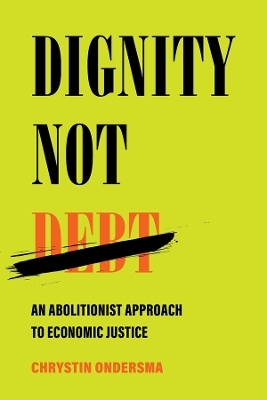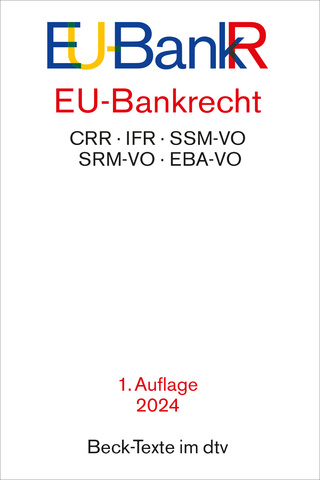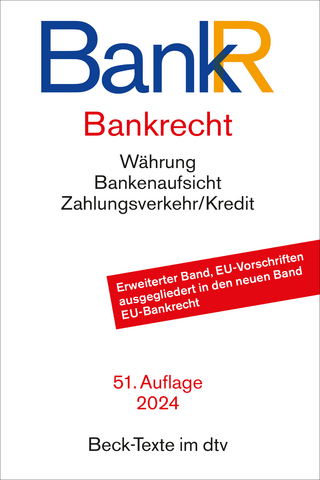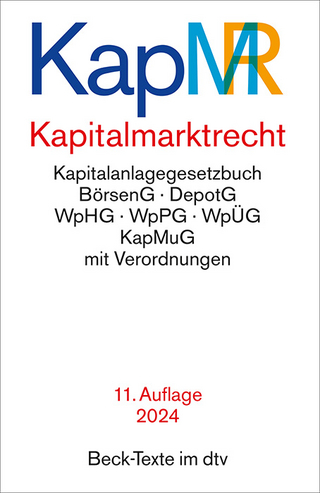
Dignity Not Debt
An Abolitionist Approach to Economic Justice
Seiten
2024
University of California Press (Verlag)
978-0-520-39147-5 (ISBN)
University of California Press (Verlag)
978-0-520-39147-5 (ISBN)
An earth-shaking reimagining of household debt that opens up a new path to financial security for all Americans.
American households have a debt problem. The problem is not, as often claimed, that Americans recklessly take on too much debt. The problem is that US debt policies have no basis in reality. Weaving together the histories and trends of US debt policy with her own family story, Chrystin Ondersma debunks the myths that have long governed debt policy, like the belief that debt leads to prosperity or the claim that bad debt is the result of bad choices, both of which nest in the overarching myth of a free market unhindered by government interference and accessible to all.
In place of these stale narratives, Ondersma offers a compelling, flexible, and reality-based taxonomy rooted in the internationally recognized principle of human dignity. Ondersma’s new categories of debt—grounded in abolitionist principles—revolutionize how policymakers are able to think about debt, which will in turn revolutionize the American debt landscape itself.
American households have a debt problem. The problem is not, as often claimed, that Americans recklessly take on too much debt. The problem is that US debt policies have no basis in reality. Weaving together the histories and trends of US debt policy with her own family story, Chrystin Ondersma debunks the myths that have long governed debt policy, like the belief that debt leads to prosperity or the claim that bad debt is the result of bad choices, both of which nest in the overarching myth of a free market unhindered by government interference and accessible to all.
In place of these stale narratives, Ondersma offers a compelling, flexible, and reality-based taxonomy rooted in the internationally recognized principle of human dignity. Ondersma’s new categories of debt—grounded in abolitionist principles—revolutionize how policymakers are able to think about debt, which will in turn revolutionize the American debt landscape itself.
Chrystin Ondersma is a law professor at Rutgers Law School and an internationally recognized expert in bankruptcy and household debt. Her scholarship has been featured in numerous publications, podcasts, news articles, and conferences.
Acknowledgments
Introduction: A Family in Debt
PART ONE: THE WORLD OF HOUSEHOLD DEBT
1. The Truth about Household Debt
2. Debt and Injustice
PART TWO: DISMANTLING DEBT
3. The Household Debt Myths
4. The Myth of the Free Market
5. The Myth That Credit Leads to Prosperity and Equality
6. The Myth of the Strategic Debtor
PART THREE: HOW DO WE MAKE THIS RIGHT?
7. A New Guiding Principle: Human Dignity
8. Human Dignity and a New Debt Taxonomy
9. A Reimagined Household Economy
Notes
Bibliography
Index
| Erscheinungsdatum | 12.03.2024 |
|---|---|
| Zusatzinfo | 1 table |
| Verlagsort | Berkerley |
| Sprache | englisch |
| Maße | 152 x 229 mm |
| Gewicht | 544 g |
| Themenwelt | Recht / Steuern ► EU / Internationales Recht |
| Recht / Steuern ► Wirtschaftsrecht ► Bank- und Kapitalmarktrecht | |
| Sozialwissenschaften ► Politik / Verwaltung | |
| Wirtschaft ► Volkswirtschaftslehre ► Makroökonomie | |
| ISBN-10 | 0-520-39147-0 / 0520391470 |
| ISBN-13 | 978-0-520-39147-5 / 9780520391475 |
| Zustand | Neuware |
| Haben Sie eine Frage zum Produkt? |
Mehr entdecken
aus dem Bereich
aus dem Bereich
CRR, IFR, SSM-VO, SRM-VO, EBA-VO
Buch | Softcover (2024)
dtv Verlagsgesellschaft
21,90 €
Währung, Bankenaufsicht, Zahlungsverkehr/Kredit
Buch | Softcover (2024)
dtv Verlagsgesellschaft
21,90 €


